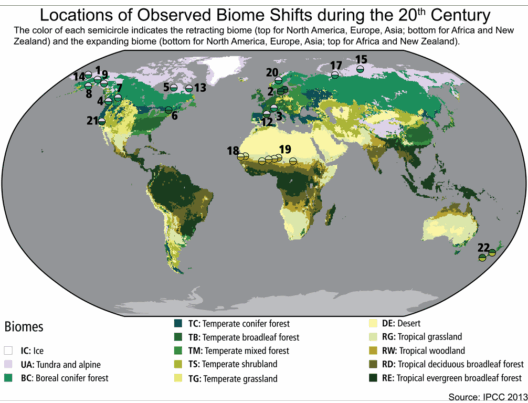Climate change, a pressing global issue, poses a significant threat to our planet’s ecosystems, weather patterns, and human livelihood. As individuals, our collective actions can forge a path to sustainability. Small changes, seemingly insignificant in isolation, can culminate in a profound impact when adopted broadly. This examination invites you to explore practical measures that can contribute to alleviating global warming.
Understanding global warming necessitates recognition of its primary drivers. Carbon dioxide (CO2), a greenhouse gas, is emitted through various human activities, such as burning fossil fuels, deforestation, and industrial processes. The consequences of these actions are dire: rising sea levels, extreme weather events, and the extinction of species. Each person possesses the ability to contribute to mitigating these emissions, and the initiation of change often lies in the minutiae of daily life.
A foundational step is the reevaluation of energy consumption. Households are responsible for a considerable portion of CO2 emissions, primarily through electricity use. By transitioning to energy-efficient appliances and LED lighting, one can significantly reduce energy consumption. Moreover, utilizing smart home technology to monitor energy use can provide insights that encourage further reductions. Renewable energy sources, such as solar panels, can be an investment that pays dividends, reducing reliance on fossil fuels while decreasing monthly energy costs.
Transportation emerges as another critical avenue for reducing one’s carbon footprint. Cars, particularly those reliant on gasoline or diesel, are substantial contributors to greenhouse gas emissions. Opting for public transportation, carpooling, biking, or walking whenever feasible diminishes individual emissions. Additionally, the electrification of personal vehicles presents a transformative opportunity. Electric vehicles (EVs), powered by renewable energy, can significantly reduce reliance on fossil fuels, thereby contributing to a cleaner atmosphere.
Food choices are equally potent in this context. The agricultural sector is associated with significant greenhouse gas emissions, from production to transportation. Choosing local, seasonal produce diminishes the carbon footprint associated with long-distance transportation. Furthermore, embracing a plant-based diet or reducing meat and dairy consumption even modestly can have a cascading effect on emissions. Livestock farming, particularly beef and dairy, is among the highest contributors to methane emissions, exacerbating global warming. By prioritizing plant-based ingredients, one can contribute to a more sustainable food system.
Waste management presents yet another opportunity for impactful change. Landfills produce methane, a greenhouse gas with a potency far greater than CO2. Implementing a sustainable approach to waste can mitigate this issue. Composting organic waste not only reduces landfill contributions but also enriches soil health, promoting biodiversity. Reducing the use of single-use plastics and opting for reusable products can yield substantial benefits. Each choice to reduce, reuse, or recycle extends beyond individual action, contributing to a more circular economy that conserves resources.
Conscious consumption can further amplify efforts to combat global warming. The fast fashion industry, for instance, is notorious for its contribution to pollution and waste. By investing in sustainable clothing brands, purchasing second-hand items, or even curating a capsule wardrobe, individuals can divert demand from environmentally harmful practices inherent in mass production. This not only promotes sustainable practices but encourages companies to embrace eco-friendliness as a consumer requirement.
Water conservation is a critical, and often overlooked, component of climate action. The energetics associated with water heating and treatment contribute to carbon emissions. Simple acts such as fixing leaks, using water-efficient fixtures, and being mindful of water usage during daily routines can substantially reduce water waste. Advocating for local policies that favor sustainable water practices strengthens community resources and contributes significantly to environmental preservation.
Education and advocacy amplify the effectiveness of individual actions. Engaging with your community to raise awareness about climate change fosters a culture of sustainability. Volunteering for local environmental initiatives, participating in community clean-up events, or even supporting policies aimed at combatting climate change can create a ripple effect. The knowledge shared within communities reduces ignorance and cultivates a deeper understanding of collective responsibility.
Voting is another powerful tool for those passionately committed to environmental stewardship. Supporting candidates or legislation that prioritize climate action aligns civic duties with sustainable goals. Every ballot casts reflects an investment in a future aimed at combating climate change and protecting natural resources. Your vote can influence policies that propel renewable energy initiatives, promote conservation efforts, and enforce regulations on harmful emissions.
In the grand tapestry of climate action, individuals need to shift their perspective. Rather than viewing sustainability as a daunting, nebulous endeavor, see it as a series of manageable, positive changes. Each small step taken in daily life compounds into a collective stride toward a sustainable future. It is imperative to recognize that you are not isolated in this adventure; your actions resonate with countless others striving for the same goal.
Embracing a mindset that values the interconnectedness of our choices allows for curiosity to flourish. Ask yourself how even the smallest adjustments can affect not just your environment but also inspire others to join the cause. Let each increment of change serve as a catalyst for broader transformation. The promise lies in recognizing that a single person’s choices can create waves of inspiration, leading to systemic change in the fight against global warming.
In conclusion, navigating the complexities of global warming need not be a daunting journey; instead, it can be a compelling exploration filled with opportunities for growth, education, and community engagement. The symbiotic relationship between individual actions and global impacts cannot be overstated. Thus, reflecting upon the changes you can implement today will undoubtedly serve as the foundation for a healthier, more sustainable planet tomorrow.







